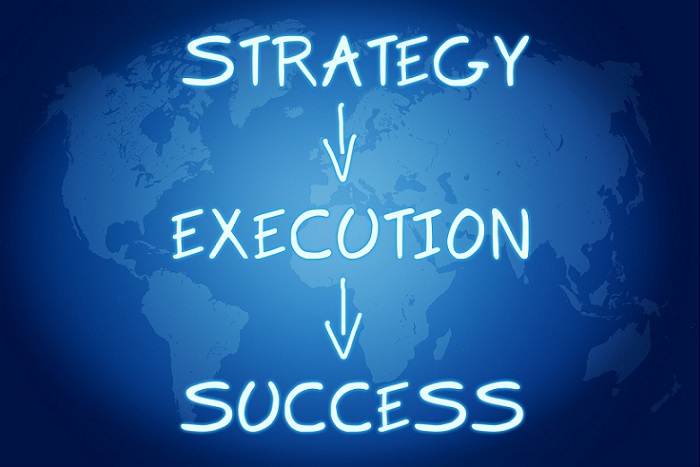The Key to Sales Strategy is a Well Defined Implementation Plan
But what does that success look like? The implementation consists of a plan with the right focus, measurement, and discipline.
With a new year starting, the timing is right to shift the focus to executing your sales strategy with precision and achieving the planned outcomes. The tolerance for underperformance is diminishing each year as companies understand that sales are a science, not an art form, and good planning and implementation methodologies to deliver results.
If you cannot plan and see how to make money at the start of the year, the results are most unlikely to be there at the end of the year.
CEOs spend considerable time and effort in the development of strategy, and it is the responsibility of the sales manager to interpret that strategy into a deliverable and manageable plan. One that takes into account the business requirements and team requirements and highlights immediately when things are not going to plan for remedial actions to be taken.
Delivering a successful sales strategy is no easy task, as sales managers face challenges each month and quarter to overcome. Those challenges come from customers, market trends, competitors, and internal issues; all potentially removing the focus from what delivers the sales plan. You can become very busy with activities that will not contribute to revenue growth.
The key to sales strategy execution requires a sales plan implementation process that is focused and dedicated to a process. The key focus areas need to be:
- Sales Planning – a detailed sales plan of the target market, with a mix of segments, existing customers, new customer acquisition, products, territories, and revenue opportunities. It sets out the ideal customer profile so the sales team can focus on the right customers for the future.
- Market Planning – In today’s competitive landscape, sales and marketing need to be aligned. Marketing teams must understand how great sales strategies can be delivered and build their marketing strategy aligned with the sales plan. The buyer personas required to generate qualified leads, the mix of products or services required by the sales reps.
- Breaking down the sales plan – What are the objectives of the sales plan, and what are the requirements to get them delivered? The micro detail of what is required to be completed by sales representatives each day, week, month, and quarter. The activities with the customers steer the direction from where the sales revenue will be derived.
- Daily Progress Tracking – When you understand the activity requirement for the business, you can then monitor to ensure the activity and the right activity is occurring. This is the engine behind any sales results being achieved:
- The level of customer interaction,
- The quality of that interaction and conversion rates, and
- Conversations with the right customers and personas.
- Weekly Individual Review Meetings – Sales managers meet to review the progress with individual team members to the plan, realign them where necessary, and remove barriers that will stop them from achieving.
- Weekly Sales Meetings – Discuss team results, success, opportunities, and performance indicator dashboards, and share successful strategies and tactics. Keep the team focused on the right activities and allow them to demonstrate how they are managing their territory and customer base.
- In-Field Coaching – Sales managers on the front line work with the team members attending sales calls to assist in improving their capabilities and effectiveness. The focus is on the sales process, the sales pitch, conversion ratios, and managing the sales cycle. This role is one of the most vital contributors to strategy execution and delivering sales goals.
- Review Meetings – Reviewing sales plans, making changes to reflect movements in the market, and providing formal training for the team.
- Annual Sales Planning – Keeping the sales plan active with a runway of one full year ahead at any time of the year. Ensuring the activities are feeding the short-, medium-, and longer-term objectives of the company.
The key to sales strategy execution is focused on effort. With the focus on performance, effectiveness, and results maintained through quality dashboards, the team will understand how to manage and deliver the planned results. The most important contribution of all is frontline coaching and reinforcement of the activities that deliver success.
To understand more about sales improvement and delivering results, please read the latest book, “The Sales Focused CEO”.
To discuss your specific requirements, please reach out to our office.
If you found this article helpful, follow us on LinkedIn or subscribe to Our Insights on the right-hand column of this page to make sure you don’t miss new posts.
You may also be interested in reading these articles:
- Taking a Modern Approach to Sales Measurement
- Connecting Strategy Formulation and Strategy Implementation
- Can Capacity Planning Work in Sales
© Y2017 Adele Crane. All Rights Reserved
